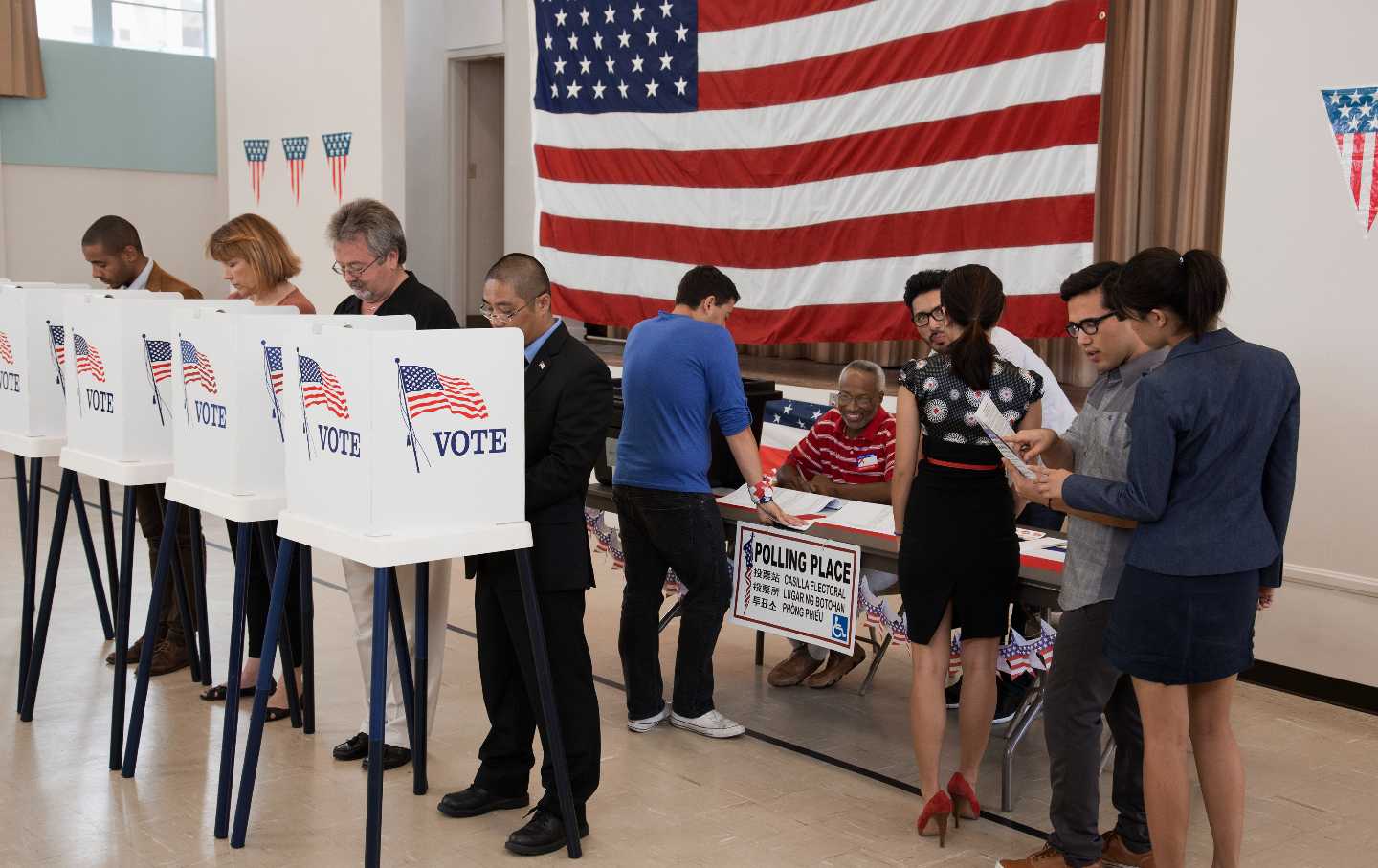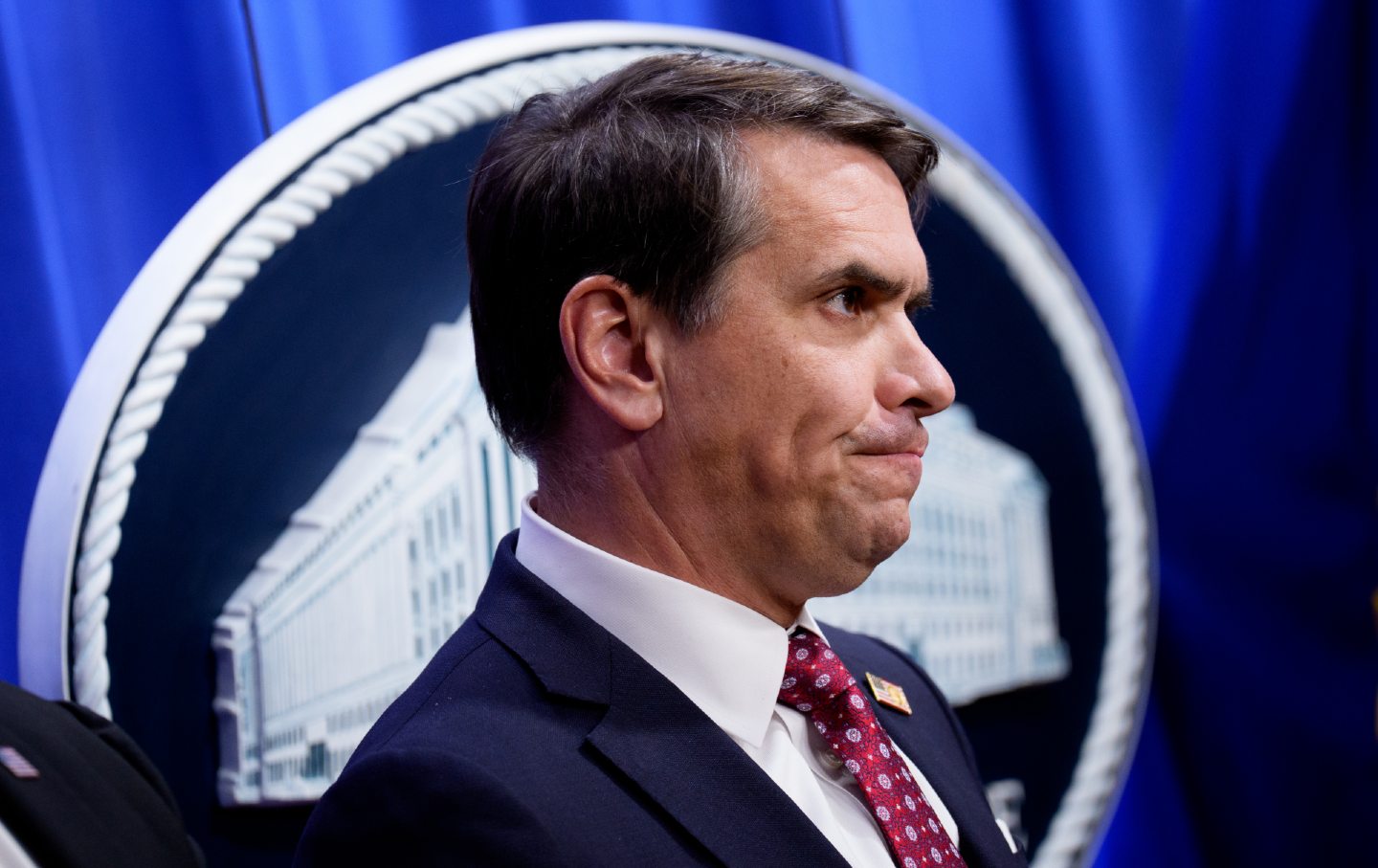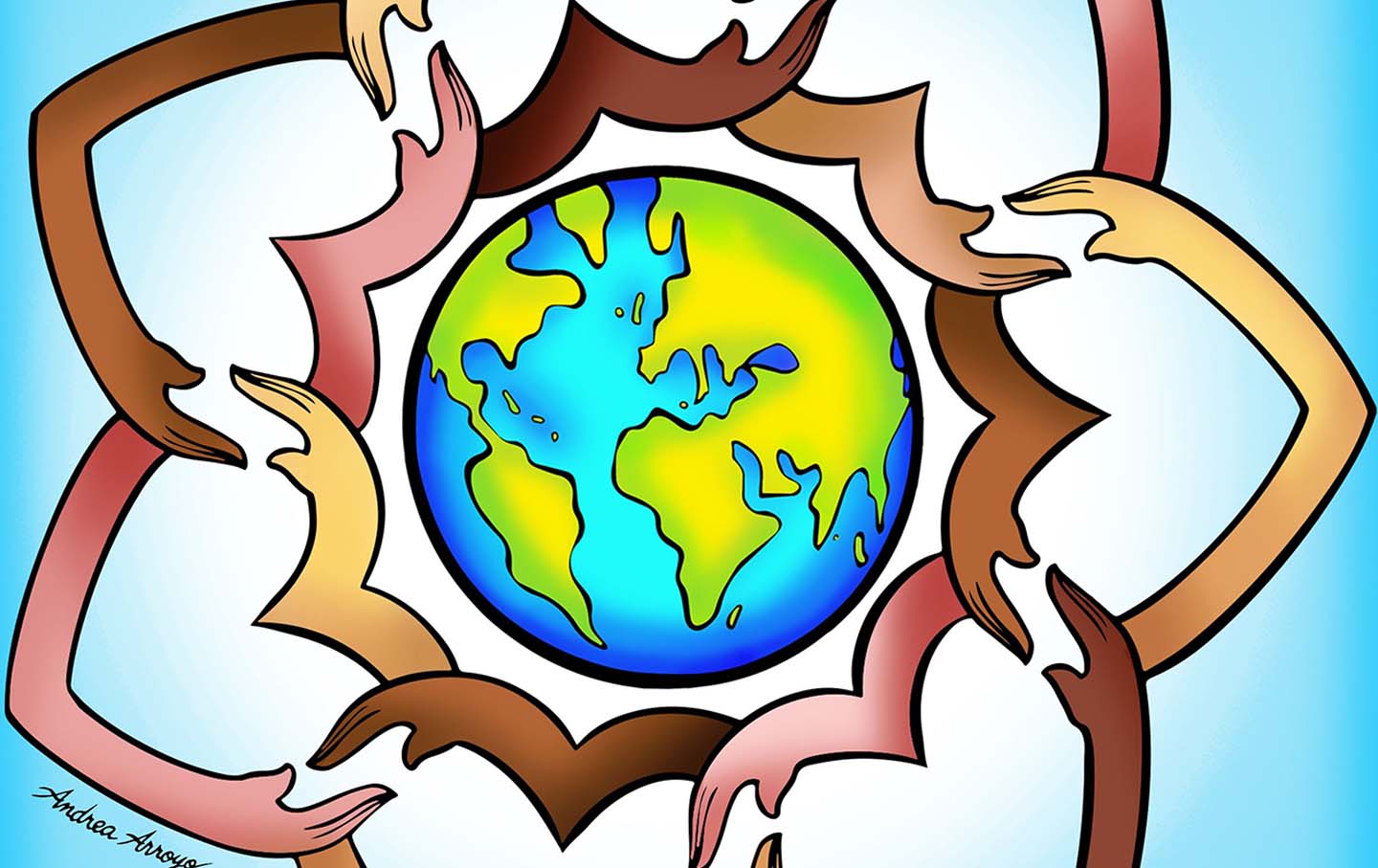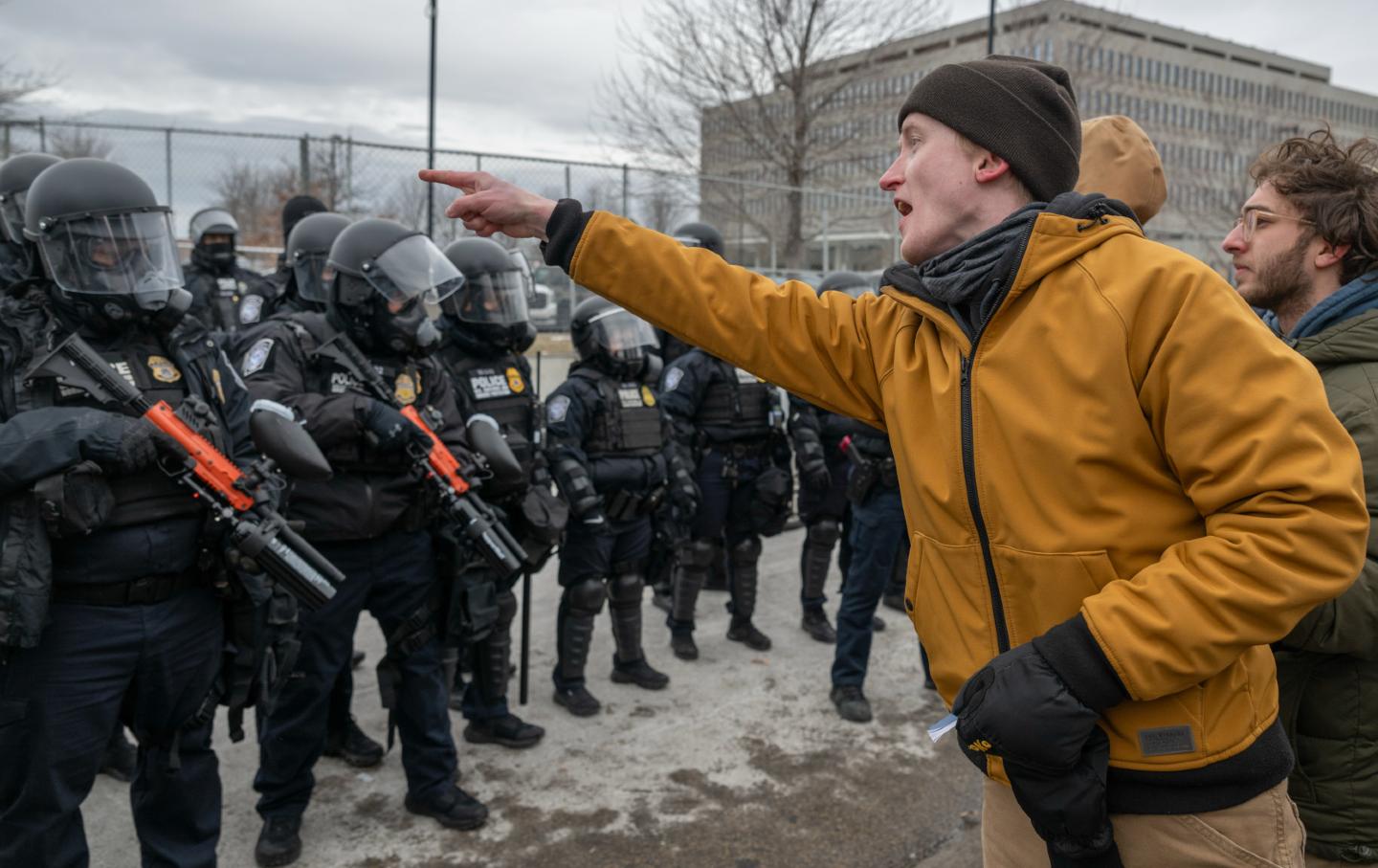Protest Voting Is a Road to Nowhere
The system may be deeply imperfect, but the stakes are too high to refuse to cast a ballot for Biden on principle.

Lately, segments of the American left seem to be testing the “fuck around and find out” theory of elections, promoting protest voting, not voting at all, and even third-party candidates in the contest between democracy and authoritarianism.
In a two-party system, electoral politics is essentially a bus: mass transit that’s designed to take as many people as possible, as close as possible, to where we all need to go. Yet a vocal faction of Gen Z in particular seems to expect Uber-like, on-demand service. “Politicians have to earn your vote!” they cry, explaining why they voted “uncommitted” in Michigan, Minnesota, and Wisconsin, or participated in the “leave it blank” campaign in New York, or will not vote for Joe Biden in the primary at all. Yes, politicians have to earn our vote—but only up to a point. Voting is fundamentally a political act of collective responsibility, where we weigh the impact of our individual choices on society at large. It’s not an act of personal expression, and it doesn’t necessarily feel good. We’ve got a messy system that frequently runs with delays and requires you to walk part of the way to your final destination. When it comes to Israel and Palestine, it’s like sharing the road with a drunk driver screaming about how much they care about human life while drag-racing a truckload of MAGA-merched-out Nazis.
This doesn’t mean we don’t try to fix the system. But fucking around even in the primaries feels awfully precarious. And although the architects behind these efforts, like the Working Families Party, may be ready to pivot to Biden in November, the act of nonvoting or protest-voting runs the risk of priming people in the wrong direction. The “uncommitted” campaign has not set a clear enough benchmark for the Biden administration, given that Biden called on Israeli Prime Minister Benjamin Netanyahu to agree to an immediate temporary cease-fire, although the US president arguably undermined the recent UN cease-fire vote. This ambiguity leaves the movement toothless as a pressure campaign, with little to tout beyond its own impact at the polls—to say nothing of the fact that it hasn’t taken any responsibility for the downstream effects that could deliver even more destruction in Gaza if Trump wins. Marianne Williamson rebooting her bid for president after seeing the results in Michigan isn’t something we have time for.
Nobody loves the bus, but it’s functional. The problem with the Uber left is that it’s exclusive, it alienates would-be supporters with litmus tests, and it doesn’t have a clear destination. Some of the loudest groups protesting Biden’s handling of the conflict, like Within Our Lifetime, are deeply nihilistic. And though they may seem like a smaller slice of the general “Cease-fire now!” crowd, their allies at the more mainstream Palestinian Campaign for the Academic and Cultural Boycott of Israel are actively hostile to the grassroots peace movement in Israel. In January, PACBI urged “conscientious people and groups around the world to refrain from engaging with [Standing Together],” calling the anti-occupation organization “a normalization outfit” that brings Jews and Palestinians together in furtherance of “apartheid Israel’s propaganda.” Normalization—in the parlance of the broader Boycott, Divestment, and Sanctions movement—holds that Palestinian self-determination necessarily conflicts with the existence of an Israeli state, so anything that legitimizes that state must be resisted.
This makes no sense to Sally Abed, the Palestinian Israeli coleader of Standing Together who was recently elected to the Haifa city council. That’s because the movement is focused on coalition-building and starts from the premise that there are two peoples on the land, neither of whom is going anywhere. They’ve been organizing since 2015, often in parallel with the pro-democracy movement that’s marched en masse against Netanyahu. According to Abed:
The majority of Israeli society is not benefiting from the occupation. They’re not paying the same cost as the Palestinians, but they have an interest, a benefit, in ending the occupation. When you are isolating these people under anti-normalization, are you actually holding your socialist values?… Are you helping the majority, or are you boycotting the minority, the elite, who is benefiting from this?… You’re definitely not a socialist, you’re definitely not a feminist. You’re literally boycotting Bedouin women in the South who got killed by Hamas.
Abed is sympathetic to those shouting their pain, especially Palestinians in the diaspora. But she has little patience for the general sloganeering divorced from actual solutions—which have to begin with coalition-building. She has particularly pointed words for the Jewish pro-Palestinian community, who “hold the most responsibility to bridge.”
“They are just so stuck in their anti-Zionism, they’re just missing the point that there are many people who would not subscribe to their ideology—which is very legitimate—but who are still sharing [their] moral compass and [their] immediate call to stop the destruction and return the hostages home.” Activists in Yonkers, New York, for example, opposed a city council cease-fire resolution on the grounds that its language was Zionist. These kinds of litmus tests make political collaboration impossible, at a time when we need to work together to halt the destruction.
The same could be said of anyone refusing to vote for Biden—in the primaries or the general election—in an effort to “boycott” US policy, without doing anything to advance peace in Israel and Palestine. “Heck if I know,” as a New York DSA leader once put it when asked about solutions, is a bankrupt response. If, like Standing Together, you’re actually trying to get somewhere, leaving a ballot blank is not an option. It’s just a road to nowhere.








